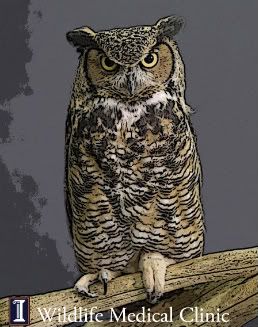This Great Horned Owl (GHO), affectionately called "Styles" by her team, came to us with a fractured right humerus. She had an external fixator placed during surgery to stabilize the fracture, which was then removed a few weeks later once the fracture had healed. In these pictures, the team is measuring the extension of her wing. We cannot release a raptor that cannot fly well enough to hunt, and this measurement is one of the criteria we use to asses the recovery of our patients. Styles' fracture healed well, and she has now been sent off to a wildlife rehabber. Hopefully, she'll be back on her own in the wild very soon.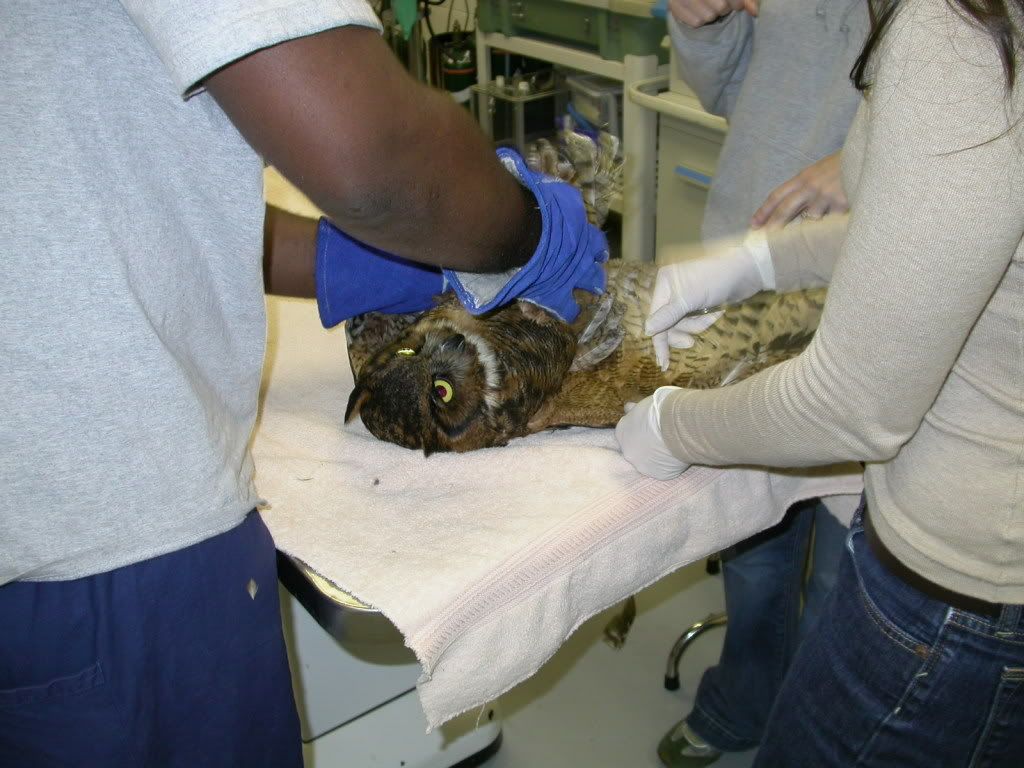
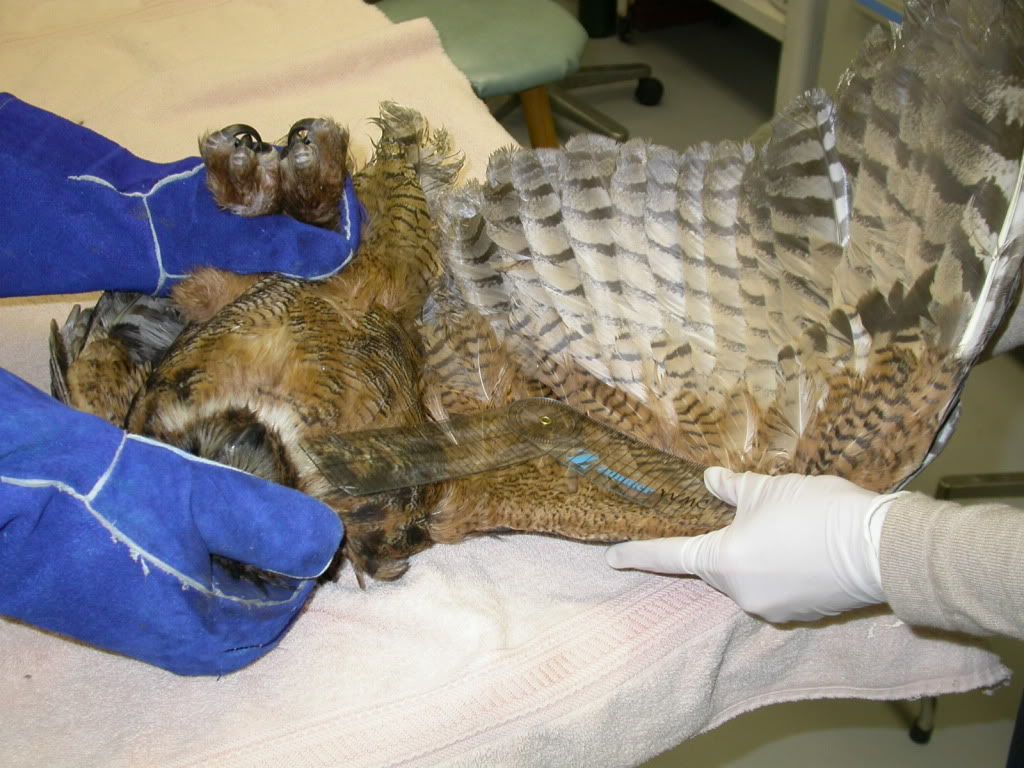
Sunday, March 22, 2009
Great Horned Owl
Thursday, March 12, 2009
Educational Events!
Our resident raptors had two great education events this week. On Tuesday evening, Odin, Nokomis, Noel, Penelope and Pistol attended a meeting of the U of I Pre-Vet Club. The future vets got to hear about the medical history of our birds and some other cases at the WMC. This evening, the birds visited Robeson Elementary in Champaign for Robeson's Math and Science Night. The students were great, and we had a lot of fun. If you want more information about booking an event with our residents, look at the online submission form.
Orphan Feedings
We feed most orphan species 5 times daily. One team is assigned to feed all of the orphans in the clinic everyday, and the responsibility rotates through all of our teams. This afternoon, members of Team 9 fed our young squirrels.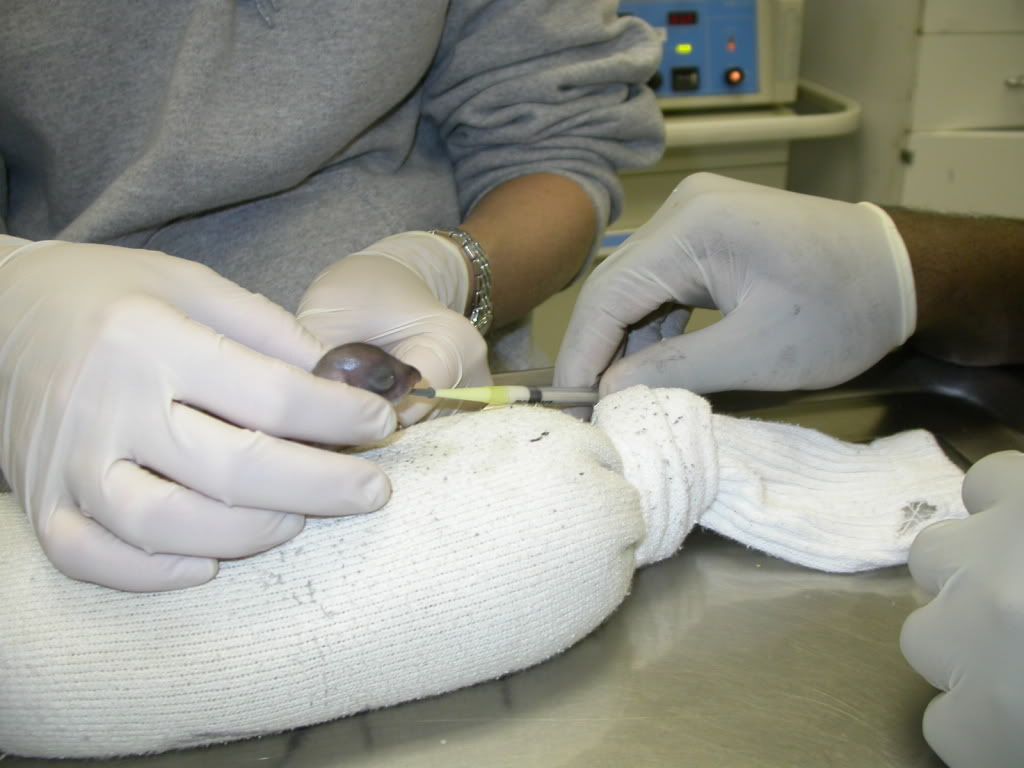
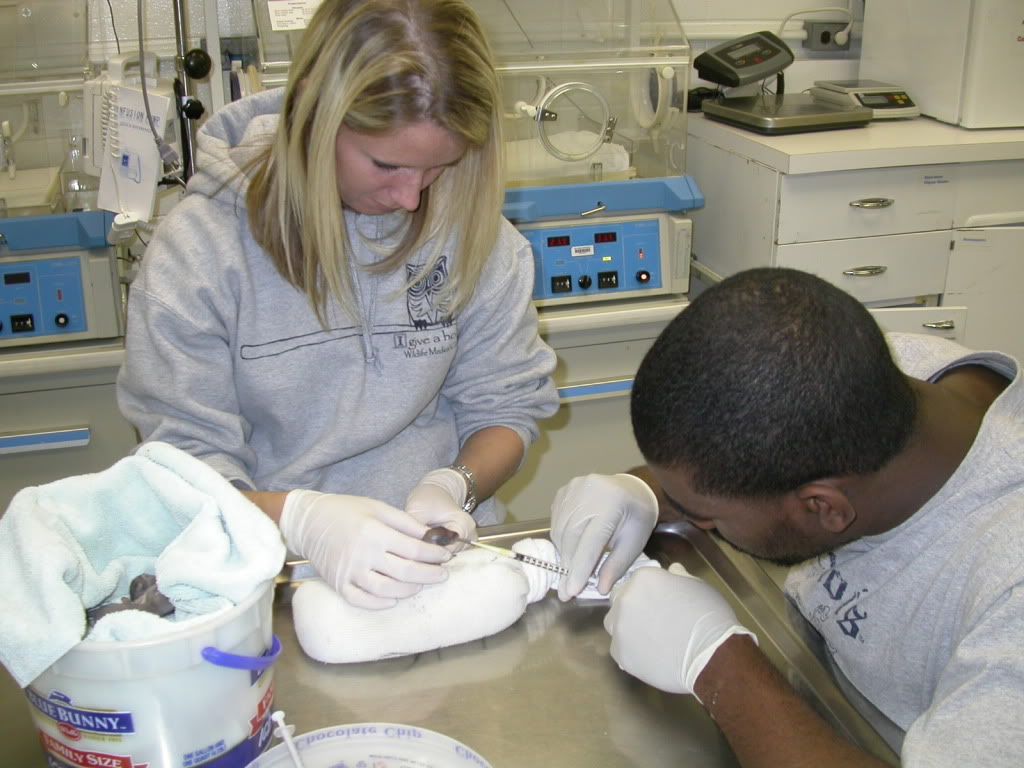
Wednesday, March 11, 2009
Orphans!
Our first group of spring orphans came to the clinic this afternoon. Every spring brings an influx of orphaned birds, bunnies and squirrels to the clinic. Unfortunately, many of the orphans we receive would have been better left alone. Parents will often leave their young for long periods during the day, leading people to think the young have been abandoned. Our recommendations are to call us when:
1) you know the parents are dead (evidence of a dead adult nearby)
2) the animal is obviously injured, weak, thin, very cold or sick
3) the animal is covered with flies or insects , or
4) the animal is in unavoidable, unnatural danger.
If the "orphan" is fat, bright eyed and apparently healthy it is probably best left alone. You can return the animal to its nest (if you can find it) or move it out of the way to a safe location. If a baby bunny's eyes are open or a baby bird is completely feathered, they are typically old enough to fend for themselves.
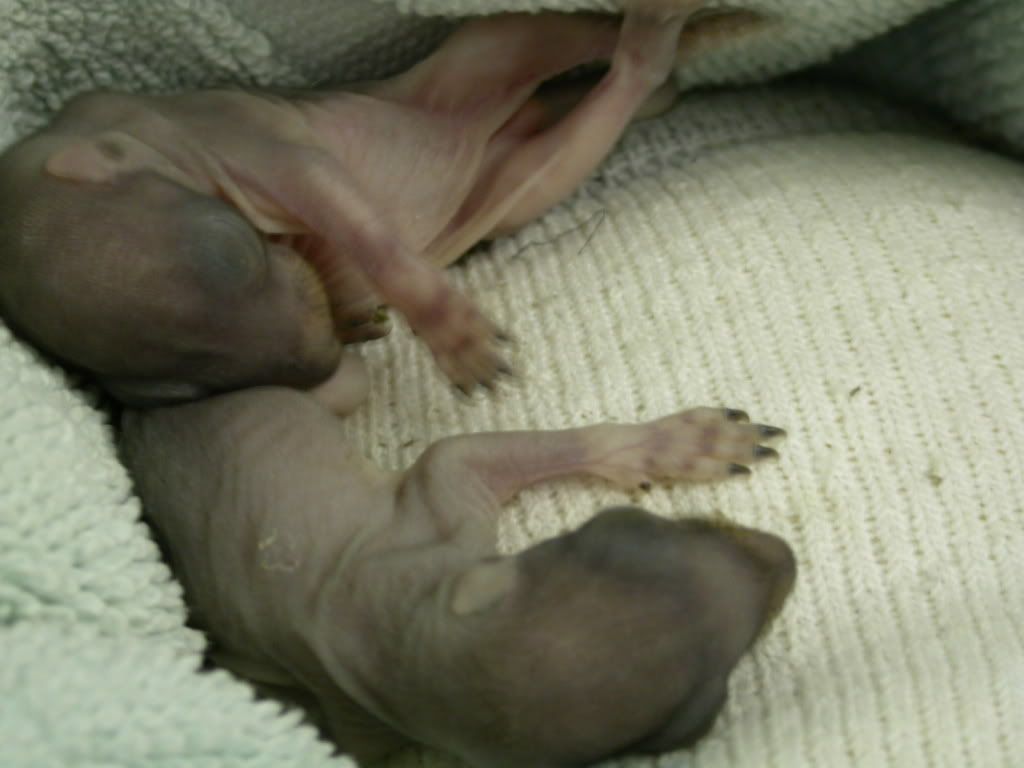
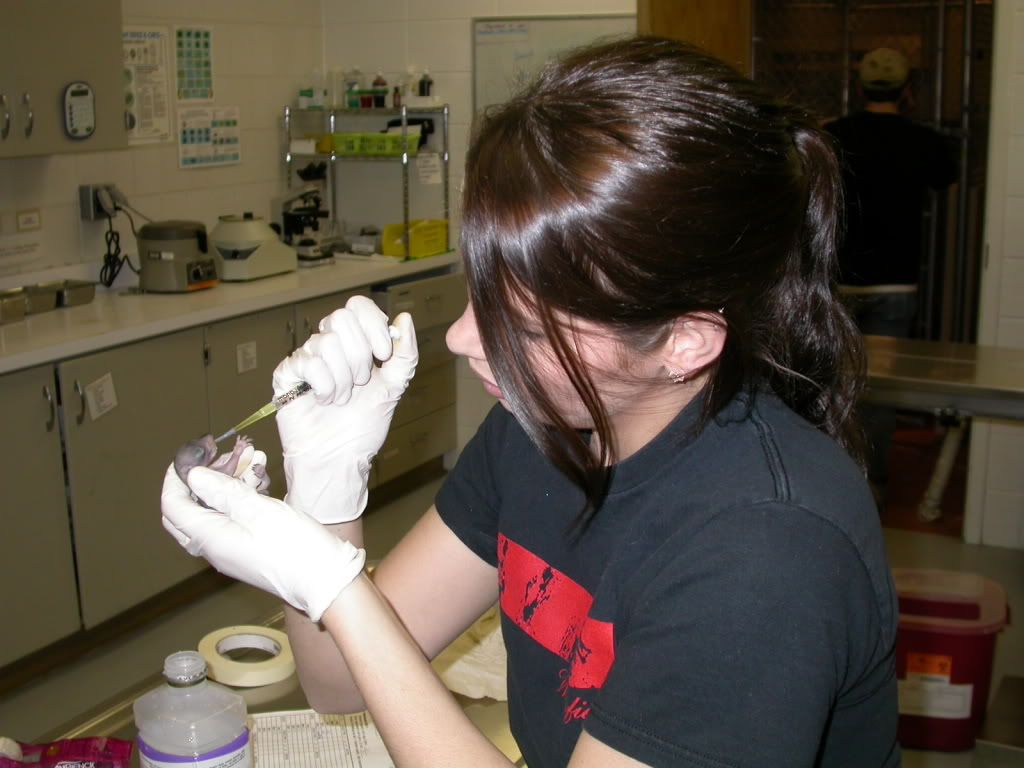
Tuesday, March 10, 2009
Doodle for Wildlife Photos
As promised, here are some of the photos from Doodle for Wildlife. I hope everyone had a great time!
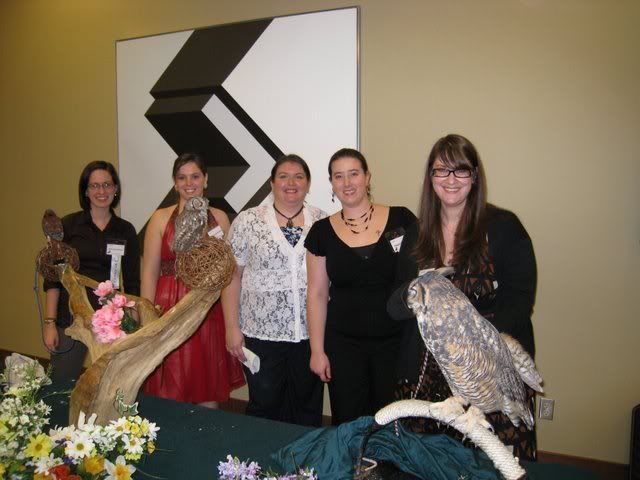
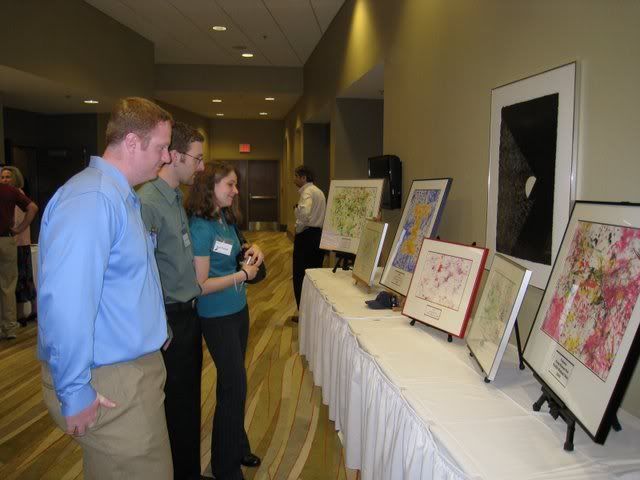


Sunday, March 8, 2009
Doodle for Wildlife
Thanks to everyone who joined us at ihotel last night for Doodle for Wildlife! The event was a success, and I hope that everyone had a great time. (I know that I did.) Pictures (and possibly video...) of the event will be posted soon. We really appreciate everyone coming out to support the clinic!
